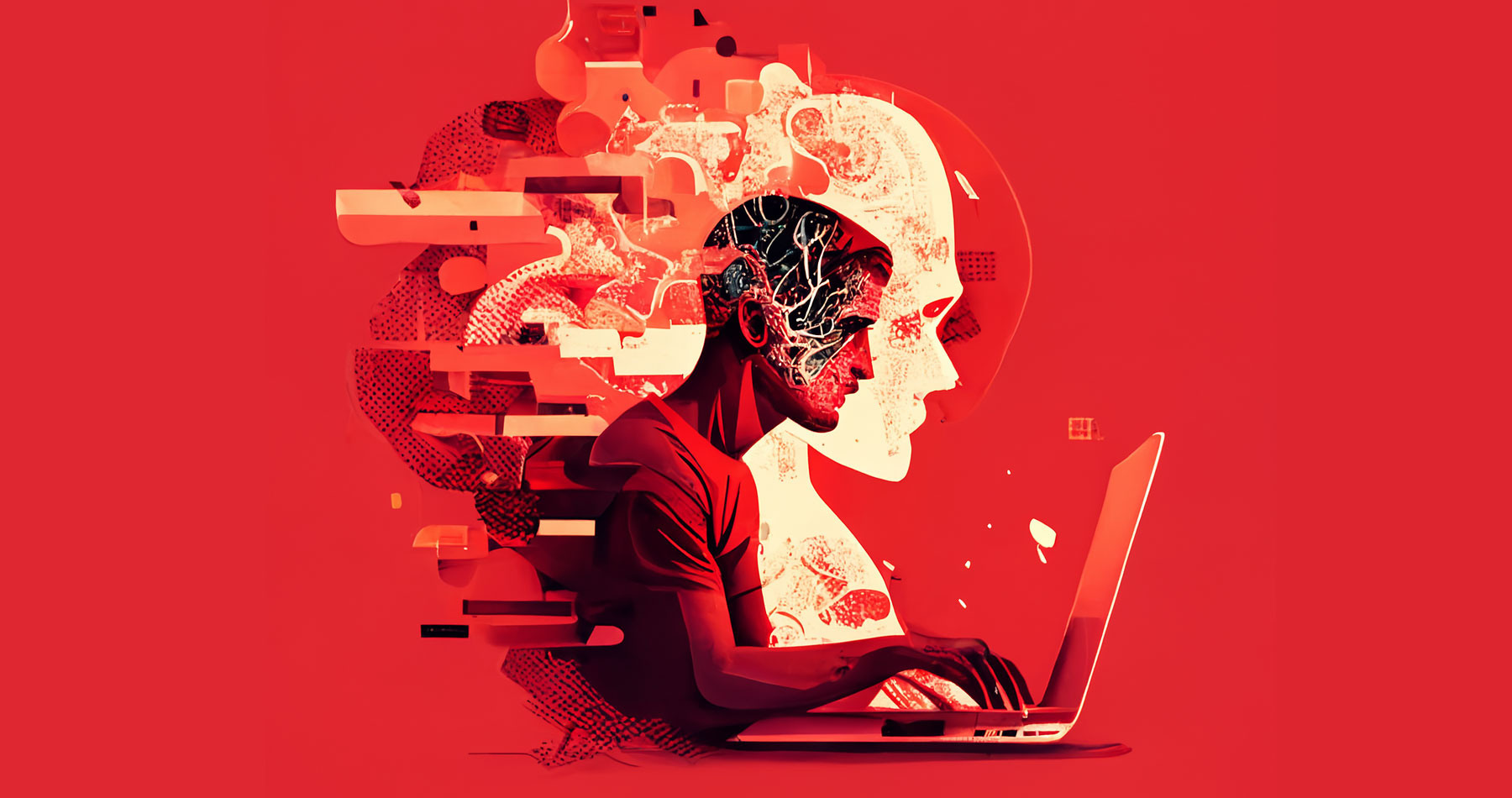
As a marketer, you know all too well the challenges of efficiently managing multiple tasks and campaigns at once. But what if there was an easier way to make sure everything runs like clockwork?
Enter AI – artificial intelligence.
With its ability to learn your preferences over time, AI can help optimize your workflow by automating routine tasks and improving data-driven decisions, and that’s just the beginning. In this blog, you’ll learn how incorporating AI-driven solutions can bring your workflow processes to the next level.
Confession: that intro was created by AI. Instead of raging against the machine, give yourself permission to embrace the internet’s obsession with M3GAN and all things AI. If you’re in robotic limbo, it’s worth challenging your perception. AI is a partner to your process, not a replacement for the unique human qualities you have. Utilizing this evolving technology in the right ways can streamline production and improve your work. After all, content is king.
Emerging technologies are helping us create faster and more effectively than ever before. With applications like Jasper, an AI writing tool, and Midjourney, an AI graphics tool, the possibilities for creating amazing digital content are nearly limitless. Content creation programs allow us to get a jumpstart on innovation so marketers can spend more time honing their craft and less time struggling on initial concepts. Of course, AI isn’t just for marketing professionals, as non-marketers who want to create meaningful content can now leverage it easier than ever before. A new age of creativity has dawned thanks to technology – and it’s only getting brighter.
Arguably, the most beneficial perk of AI is that it supercharges your creativity. You can go from concept to impactful content creation in minutes with analytics to back up the why behind the concept. AI has the ability to refine any idea into something better through powerful, data-driven decision-making.
Here are some ways AI can maximize creativity:
The moral implications of AI are a subject of great debate. After all, what happens when we create something so powerful it has the potential to overcome its creator a la Ex Machina? Some experts answer that question by prioritizing a need for a “human in the loop” because at the end of the day, only humans can determine whether content is on-brand and worthwhile.
The truth is that AI isn’t perfect. It gets things wrong. AI gives creators a mathematically divined direction to go somewhere—not necessarily an absolute answer.
Another concern: privacy. One example is the use of a deepfake voice for the late Anthony Bourdain in “Roadrunner: A Film About Anthony Bourdain.” Since he wasn’t around to give permission for this usage, there are concerns of consent (that he might not have approved), disclosure (that an audience might not know it is deepfake), and the psychological effect of a resurrected persona.
Ownership issues are stirring artists to stand up for their work. Because AI consumes databases of what is in the digital world, popular graphic apps like Lensa are coming under fire for allegedly stealing work. Proponents of the app argue the work produced through AI isn’t an exact replica, and therefore can’t be stolen.
At Crux, we don’t view AI as a replacement for the human element, we see it as a resource to enrich our perspective and as a search engine for inspiration. By no means should AI infringe on copyright or proprietary style, and it shouldn’t be used to produce final visual art.
Right now, we’re in the early days of AI. We’re figuring out how to best use fresh technology while it’s learning from us, too. As technology advances, AI will become smarter, more sophisticated and better able to process complex topics in the service of generating more accurate information and communications. This will likely make it easier for marketers to create engaging and interesting content faster than ever before.
The use of AI can help content creators personalize their messages by understanding their target audience’s interests and preferences. For example, AI can analyze customer behavior data from social media platforms or website visits to target and tailor specific messages. This kind of personalization will help marketers more effectively activate customer-centered experiences that ultimately grow brand preference and loyalty.
AI-generated content will also warrant increased opportunities for automation. Marketers can use artificial intelligence algorithms to automatically generate articles, posts, emails or other types of content based on data collected from various sources, such as search engine results or web analytics. This kind of automation can save time and money while still delivering high-quality results.
It’s clear that AI-assisted work holds great potential for the future – in digital content and nearly everywhere else. As technology advances, so will the skills of creative practitioners who will continue to find new and innovative ways to merge artificial intelligence with human imagination. Welcome to the age of bionic marketing!